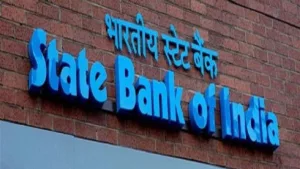Surge in Trend of Bank Frauds by Bank Employees: How to Protect Yourself

Surge in Trend of Bank Frauds by Bank Employees: How to Protect Yourself
In a recent ruling in April 2024, the Supreme Court of India affirmed a bank’s responsibility for the actions of its employees.
17 May 2024
By Sukhmani Kooner
Lately, there have been numerous accounts of bank branch managers and their associates fleeing with depositors’ funds entrusted to the bank. The majority of these incidents entail bank employees engaging in fraudulent activities against both customers’ and the bank’s interests.
Consequently, if you possess a substantial amount of assets stored at a bank, it’s understandable to harbour concerns regarding the safety of your investments, particularly given that many of these occurrences have taken place within renowned and leading Indian banks.
In a recent ruling in April 2024, the Supreme Court of India affirmed a bank’s responsibility for the actions of its employees. This decision was made in a case where an employee unlawfully withheld funds intended for deposit into a customer’s Fixed Deposit account.
“As per the Apex Court, such acts (frauds) of employees, when done during their course of employment, are binding on the bank and will give customers a right to legally proceed against the bank for loss or damage. In most cases, it would be the only effective remedy available to the customers. However, the bank’s liability may be limited in cases where the customer has shared his password, PIN, OTP, etc., with the bank employee,” said Suma R V, Partner, King Stubb & Kasiva, Advocates and Attorneys.
According to the RBI Master Direction on Fraud – Classification and Reporting, banks are obligated to escalate complaints raised by customers regarding alleged fraud committed by the bank’s employees to the relevant authorities such as the CBI or the police. Soumen Mohanty, an Associate Partner at AQUILAW, a law firm, states that customers also retain the option to pursue legal action against the bank through Consumer Commissions. Additionally, criminal proceedings can be initiated against both the bank and its employees for the purported fraud.
Banking and fraud experts emphasise the necessity for thorough investigation into cases involving bank employees defrauding customers, noting the atypical nature of such incidents.
According to Sheetal R Bhardwaj, an executive board member of the Association of Certified Financial Crime Specialists (ACFCS) in Dubai, UAE, and Head of Compliance for a UAE-based bank, if a bank determines that one of its employees is responsible for the fraud, measures such as employee punishment or suspension may be taken, alongside collaboration with law enforcement for further inquiry.
The resolution of customer reimbursement hinges upon the findings of the investigation and the policies of the respective bank; some banks may compensate customers or rectify the damage promptly, while others may await the conclusion of the police inquiry before taking action. Additionally, it’s noted that banks typically secure themselves against employee fraud through insurance measures.
To protect yourself from such frauds, Bhardwaj recommends collecting proof of your dealings with bank employees for any conflicts that may arise. She says, “It is vital to have proof of your dealings with bank employees for your own safety and to settle any conflicts that may arise. Remember that timely documentation is critical. Waiting too long may lead to memory gaps or lost records.”
Document Odd Actions and Messages: Take note of any unusual behaviour or communications with the bank employee. Keep records of relevant emails, messages or account statements, and print them out for documentation purposes. For online transactions or communication, capture screenshots or save electronic records as evidence.
Regularly Monitor Bank Transactions: Stay vigilant by regularly monitoring your bank transactions. If you spot any unauthorised transactions, promptly inform the bank to freeze the affected accounts. Additionally, closely monitor other accounts for any signs of suspicious activity.
Cease Communication with Suspect Employee: If you harbour suspicions about a bank employee, refrain from further communication with them and document all interactions related to the case.
Frequently Change Passwords: Enhance security by frequently changing your passwords, PINs and other login details for online and mobile banking.









